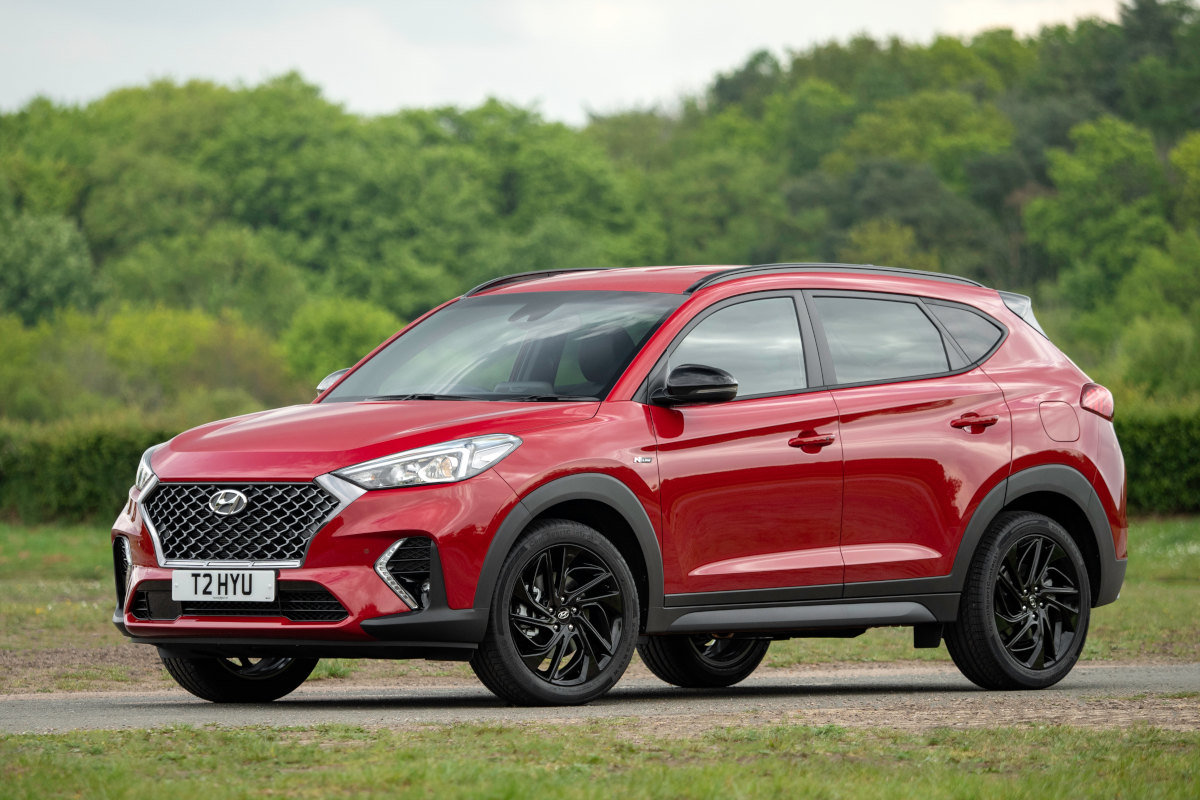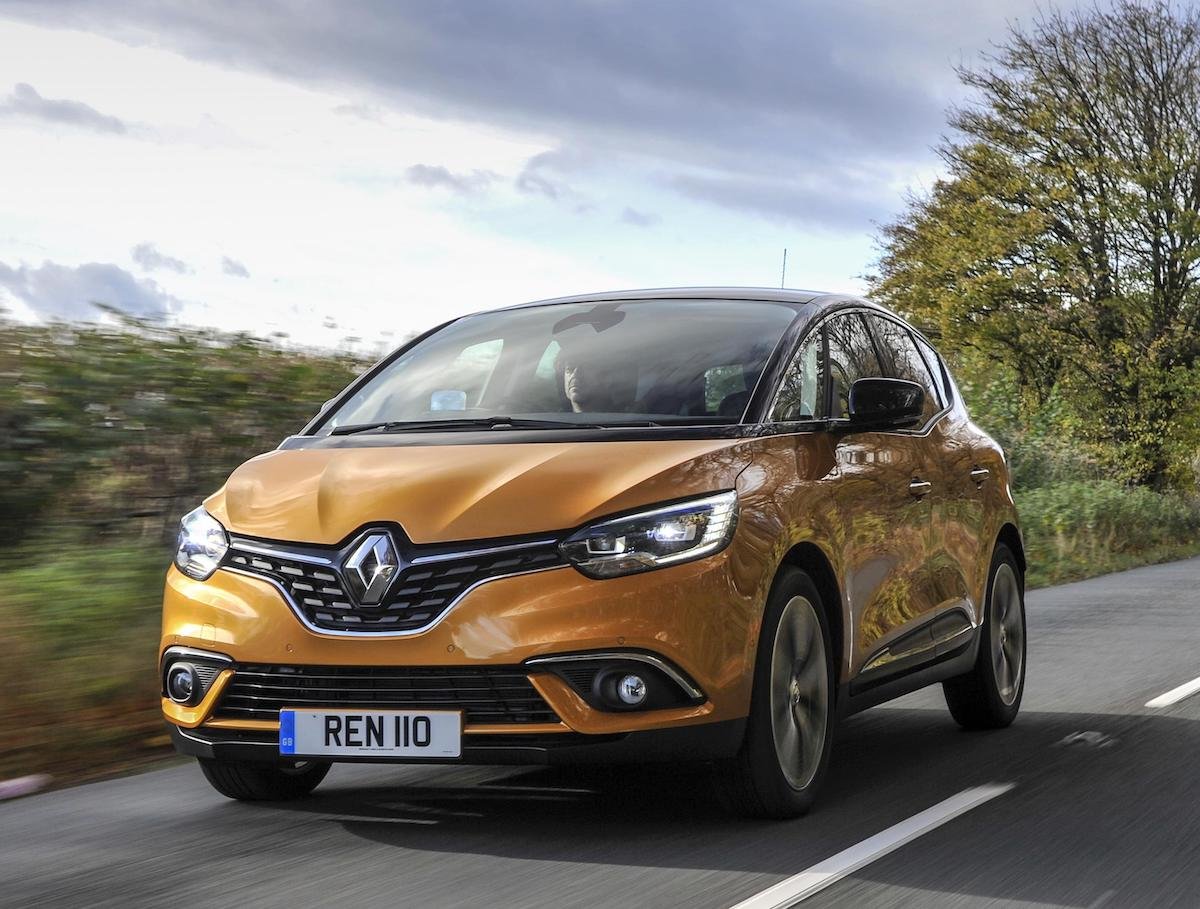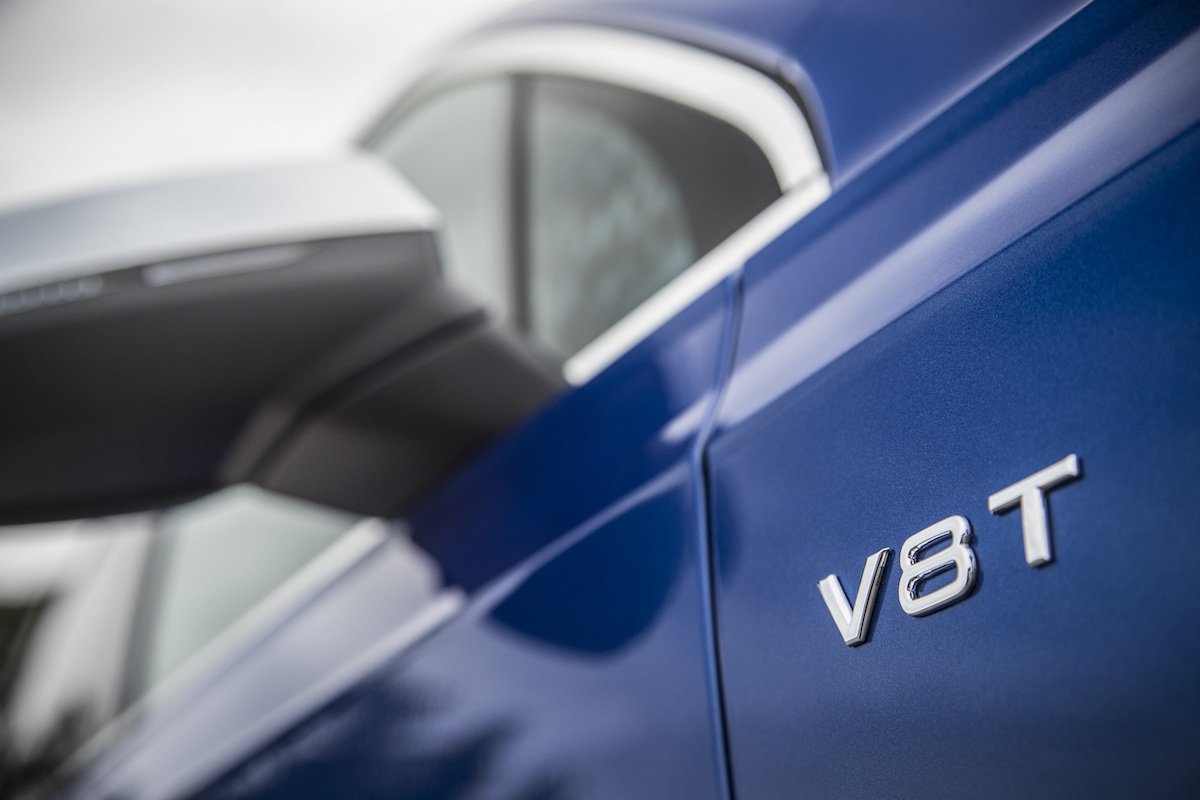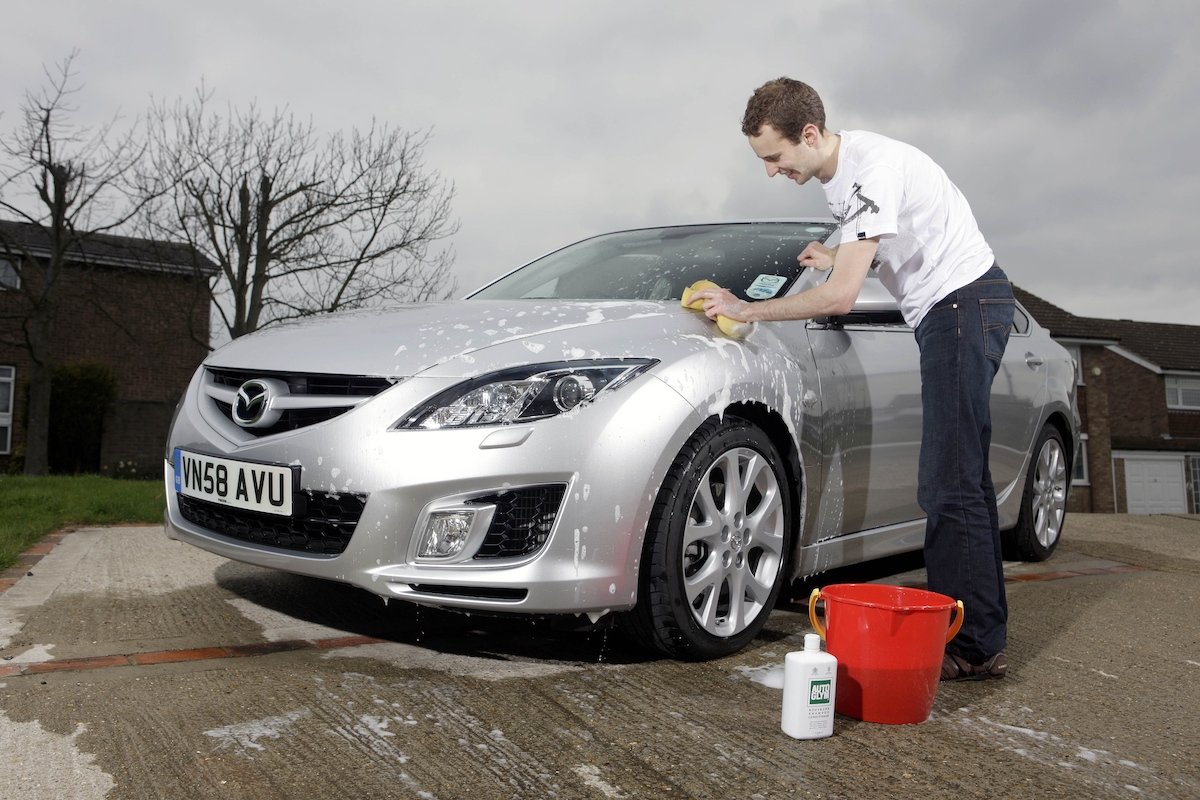How much money is sitting outside your house, perhaps even in your driveway, right now? Ascertaining your car’s value is never easy, but it might be worth more than you’d think. The question is, just how do you do it – and more importantly, how can you make sure your car is worth the maximum amount possible when you come to sell it or trade it in?
Car Valuation Explained: How to Get the Best Price for your Car
- Value Your Car with CarGurus
- Other Ways to Value Your Car
- How do Car Values Fall, and How Far do they Drop?
- Are Car Values Affected by Supply and Demand?
- Which Cars Depreciate the Fastest – and Which Hold their Value Best?
- What Else Can Affect a Car’s Value?
- Do Values Normally Go Back Up Again?
- How Can You Increase Your Car’s Value?
- Find the Value of Your Car Today
Value Your Car with CarGurus
One of the quickest, easiest and most accurate ways to value your car is with the CarGurus free car valuation tool.
Simply enter the car’s registration number - or if you don’t have that, the make, model, year, mileage and a few other details - and you’ll be given the CarGurus Instant Market Value (IMV) for your car. The IMV is an estimated fair retail price for your car based on detailed analysis of comparable car listings - both current and previous - in your area. The valuations are updated daily by a complex algorithm that takes into account millions of live market data points, keeping them bang up to date with market conditions.
We also use this accurate valuation to provide car buyers with a deal rating - from ‘Great’ to ‘Overpriced’ - on the majority car listings on CarGurus, so you always know whether the price you’re paying is a fair one. These ratings factor in both the IMV and dealer ratings from real car buyers.
And, if you like the value you see and want to get on with selling your car, we can help with that, too, thanks to our hassle-free ‘Sell My Car’ service. Entering similar details to before gets you a cash offer in under a minute, and if you decide to go ahead, we’ll work with our partners to arrange for your car to be collected, and once it is, you’ll be paid the same day. Simple.
Other Ways to Value Your Car
There are various other online car valuation tools available that can give you an indication of the value of your car. These can be found on websites such as Carwow, AA cars and What Car?. Again, in most cases you’ll be asked for various details about your car - vehicle registration, make, model, age, condition of the bodywork, any optional extras fitted - and the tool will then calculate the value of your vehicle.
With any of these tools, it’s important to remember that the value of the car given should be used as an approximate guide rather than a cast-iron figure, because the ultimate sale price will also depend on how you sell it. For instance, if you go to all the effort of conducting a time-consuming private sale, you’re more likely to get more for the car than if you part-exchange it or sell it to an online platform.
Alternatively, if you want to do the work yourself to get an accurate price, the other way is to comb through the classifieds, looking at cars like yours for sale at other car dealers, and estimating a value based thereon. Don’t forget, though, that you’ll have to make allowances for differing mileages, ages and conditions – and you’ll have to make sure you find cars with a similar amount of service history as your own.
How do Car Values Fall, and How Far do they Drop?
A car’s value starts to fall the minute it leaves the showroom. Simply having had an owner on the logbook can affect a car’s value; this is why pre-registered cars (that is to say, brand-new cars that have already been registered by the dealer in order to help them with their sales targets) are worth slightly less than other brand-new cars.
Plot a car’s value over the course of its life on a graph, and it’ll usually look like the bottom half of the letter C. Its value will fall furthest in the first year; in fact, the AA says that a car will fall by around 40 per cent in value from the day it leaves the showroom to its first birthday, on average. That’s why it’s such a bad idea financially to sell a brand-new car when it’s just a year old – you’ve paid a very high amount for a very short time with the car.
In years two and three the drop in the car’s value will decelerate, and the graph will start to level out. After three years, according to the AA, a car will have lost around 60 per cent of its value compared with when it was new.
Don’t forget, though, that lots of car makers, dealers and journalists talk about resale values in percentage terms, which can mask the true cost of a car’s depreciation in cold, hard cash.
For example, if Car A is predicted to lose 40% of its value in its first year, it might sound like a more sensible buy than Car B, which loses 45% of its value over the same amount of time. However, if Car A costs £35,000 when new, and Car B costs £30,000, you’ll lose £14,000 on Car A, but only £13,500 on Car B.
Are Car Values Affected by Supply and Demand?
Usually, used car prices will only go one way – down. However, the rate at which they’re dropping can change depending on supply and demand. In other words, if the amount of used cars available drops off, or if demand for them increases, the rate at which values fall off can slow.
In mid-2021, an unusual set of circumstances actually caused used UK car valuations to increase, a phenomenon never before seen. A shortage of computer chips resulted in car manufacturers being unable to make as many brand-new cars as they would have liked, and that caused long waiting lists at dealerships, even for ordinary models.
Buyers who were coming to the end of their finance deals and would usually have chosen another new car as their next car weren’t able to wait, though, and had to turn to the used car market in order to source transport urgently. Meanwhile, pent-up demand from the second Covid-19 lockdown in the UK meant dealers were full of buyers looking to upgrade their older used cars.
This extreme increase in demand collided with an extreme shortage in supply, as people who had the option to hold on to their current cars for longer chose to do so instead of selling them, meaning fewer cars on the market. The result was that the values of most used cars actually went up – a perfect (albeit extreme) example of how supply and demand can affect used car values.
Which Cars Depreciate the Fastest – and Which Hold their Value Best?
Depreciation is dictated by market forces, so there’s no hard and fast answer to which cars depreciate the fastest; indeed, the answer to this question can actually change over time, as people’s desires and the cars they’re looking to buy change, too.
Generally speaking, though, more powerful and larger-engined cars depreciate the fastest – the reason being that they’re often the costliest to buy new, but the least desirable on the used market as a result of their high running costs.
In recent years we’ve also seen changes in the way different fuel types perform. For example, ever since the Volkswagen diesel emissions scandal of 2015, also known as “Dieselgate”, demand for diesel cars has fallen.
The trouble is, diesel was very popular beforehand, and that now means the market has been flooded with all those diesel cars people bought new a few years ago. That oversupply, combined with the fall-off in demand, has meant lots of diesel cars have fallen in value more steeply than was predicted, and owners have had a bit of a shock when they've come to part-exchange.
The flipside to this, of course, is that from a used car buyer’s perspective, many diesel cars are starting to look like pretty good value, because they can be had for much less money than their petrol equivalents.
Occasionally, though, more powerful cars can depreciate very slowly. Usually, this occurs when a manufacturer releases a sports or performance version of their car that’s highly sought after, but has a limited production run.
On some rare occasions, second-hand examples of these sorts of cars can actually be worth more than new ones, particularly if there’s a long waiting list for a new example, because buyers are willing to pay more to get hold of a car immediately.
To see which cars have suffered the most depreciation over the past 12 months, check out our guide to the best value cars to buy right now.
What Else Can Affect a Car’s Value?
Apart from differing specifications, value is most heavily predicated on the condition of the car. There are several big factors that affect a car’s value; most notably:
- Age: unless we’re talking about classics, a newer car will almost always be worth more than an old car.
- Condition: naturally, a shiny car with no damage is always more desirable.
- Mileage: this tends to matter less with age, but newer cars with high mileages can be worth significantly less than low-mileage examples. However, lower mileage cars aren’t always better in truth, because rather than undertaking fewer journeys, they may have simply undertaken shorter journeys in urban settings, which puts more stress on a car’s mechanical parts than long motorway journeys.
- MOT: a car with a recent MOT test is more likely to be in roadworthy condition, and there’s more time before the buyer needs to worry about the next test.
- Service history: a car with a full record of its maintenance, and evidence that it’s always been serviced to the manufacturer’s specification, will always be worth more than a car with either a partial service history or none at all, because the buyer can tell the car’s been looked after, and is therefore more likely to be reliable.
- Warranty: If your car has the balance of warranty remaining, and that warranty can be transferred to the next owner, then it'll help to increase its value compared with alternatives that are already out of warranty.
- Previous owners: a car that’s changed hands many times might have done so because it’s unreliable. So a car with relatively few previous owners tends to be worth slightly more, as it suggests it’s a good example.
Do Values Normally Go Back Up Again?
Eventually, yes, though it takes a long time. Usually, the ‘tail end’ of the C-shape we mentioned earlier occurs once a significant number of examples of the car in question have been scrapped or taken off the road for other reasons; meanwhile, interest in that car has to rise, with the result that demand eventually starts to outstrip supply.
Once that happens, values will start to rise again. For some particularly rare models, this can happen surprisingly quickly; for more mainstream cars, though, it can be 25 years, sometimes even more, before “classic status” starts to kick in and values start to increase once again.
How Can You Increase Your Car’s Value?
Keeping as much value in your car as possible is all about maintenance. Keeping a car well will ultimately make it more attractive to buyers, so make sure you get the car serviced on time (or at the required mileage, if you drive lots of miles every year), and keep a record of that service, either by having the service book stamped or by keeping the invoice – preferably both. If your car hasn’t long left on its MOT, you can also boost its value by getting the MOT test done before you put it up for sale.
It’s also a good idea to keep the invoices for any other repair or maintenance work you have carried out; that way, a buyer will be able to see how well you’ve looked after the car, and this full service history will make it more desirable in their eyes, so you're more likely to get a fair price.
A car is usually worth more if servicing and repair work is carried out by someone who really knows what they’re doing. That’s why cars that have been worked on by franchised dealers or independent garages that specialise in that marque tend to be worth more. For that reason, it’s worth seeking them out, even if it’s a little further to drive than your local garage.
But maintenance isn’t just about the mechanical side; it’s about presentation, too. That starts on the outside; regular washing, polishing and waxing will keep the paintwork fresh and clear of any imperfections and maintain your car’s shine, so that when you come to sell it, it’ll stand out as a gleaming example.
Get any damage repaired as soon as you can; that way, it doesn’t build up and leave you with a big bill to get it all fixed when you want to sell the car on. Sorting out scratches or dents that have broken the paintwork sooner rather than later also means they won’t rust, which can cause more expensive problems further down the line. On that note, if you have an older car that’s starting to rust, getting it sorted promptly will also stand you in good stead.
Inside, too, the name of the game is attentive maintenance. Treat the car’s interior well and try to avoid damage to the plastics. Clean the cockpit out regularly – especially the carpets, to stop dirt getting ingrained – and treat any spillages with an upholstery cleaner as soon as possible.
You could also carry out a vehicle history check from a company such as HPI. That'll prove to any potential buyer that the car is free of any nasties in its history, such as outstanding finance or a history of having been written off.
One more thing you can do to keep your car’s value up is to reduce the amount you use it. If you’ve the option of walking, cycling or taking public transport instead, your car’s mileage will rise more slowly, and that’ll make it worth more when the time comes to sell it on or trade-in.
Find the Value of Your Car Today
Now that you’re an expert in car valuations, why not put it to good use by finding out the value of your car today? Once again, make sure to check out our free car valuation tool, and of you fancy some help selling your car, also be sure to visit our Sell My Car page.




